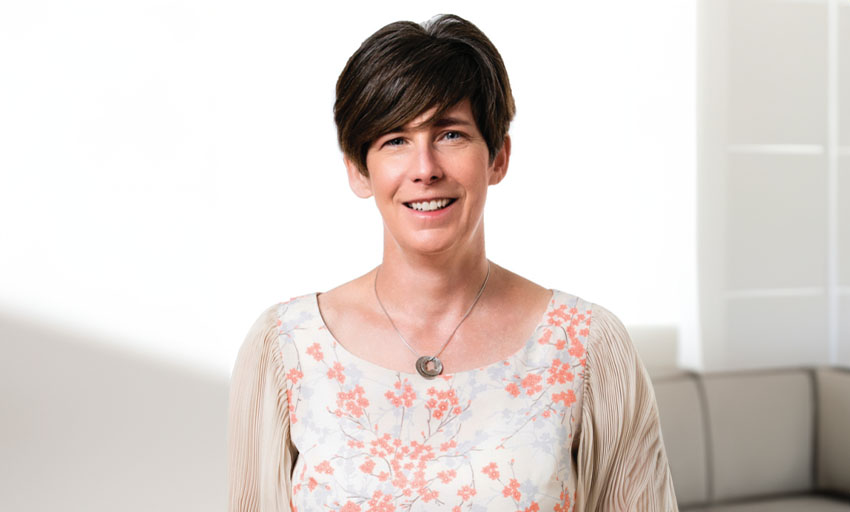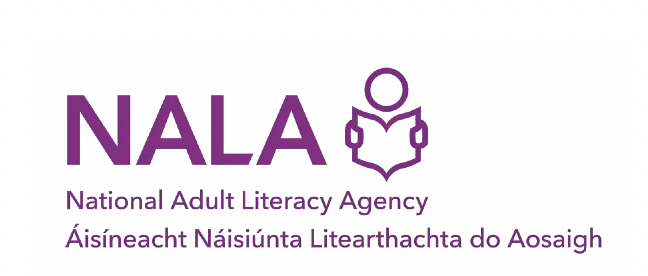Creating a literacy-friendly Ireland

The National Adult Literacy Agency Chief Executive Officer, Colleen Dube, speaks about adapting their services to meet learners’ needs, collaborating with a wide range of public sector organisations on their plain English requirements and advocating to government on behalf of literacy learners.

Learn with NALA
In 2023, the National Adult Literacy Agency (NALA) shared its knowledge and expertise with a wide range of adult learners and public sector organisations to enhance literacy skills and awareness in Ireland.
We are proud to say that since 2000, NALA has provided personalised, confidential one-to-one tuition, flexible independent learning opportunities with recognition of prior learning (RPL) and national certification options to adult literacy learners. Over the last two decades, we have supported 5,050 learners with 42,637 one-to-one personalised over-the-phone tuition sessions and 14,428 learners to achieve 48,327 Quality and Qualifications Ireland minor awards in literacy, numeracy, and digital literacy at level 2 and 3.
In March 2020, we launched, Learn with NALA, our new website and brand, which continues to offer adults the opportunity to develop their skills and gain national qualifications on a state-of-the-art learning management system.
A key aspect of Learn with NALA is our tutoring service which provides personalised one-to-one tuition in literacy, numeracy, and digital literacy to adult learners. Our aim is to accommodate the learner as best we can, so tuition is delivered by NALA’s adult literacy educators through 30-minute calls once a week over the phone or virtually through Zoom. Learners receive materials after each session by post or email which they can review and work through in their own time.
The Learn with NALA service is entirely free, confidential, and designed to give adult literacy learners a positive educational experience, build their confidence and motivate them to continue their learning journey.
We are currently completing a research report analysing the profile, activity, progression, and feedback from Learn with NALA users between March 2020 and November 2022. Some key findings are that 62 per cent of our online learners are between 18-45 years of age, 54 per cent are women, and 56 per cent are independent learners rather than learners in educational settings.
Learner feedback allows us to adjust and improve Learn with NALA as needed. The following quote from one learner is an example of positive feedback we receive:
“When I was isolated, I saw NALA online and I went for it. It has given me great confidence and I work on it through the iPad. I just felt it was something I was doing for myself as I fell through the cracks in school and probably at home as well. I really did enjoy it and got so much from it. I did Level 2 computers and I think it is a wonderful course.”
It is evident from these findings and feedback that Learn with NALA is making a valuable contribution to Ireland’s ambitions for life-long learning, social inclusion, and upskilling.
Plain English editing and training
One in six people in Ireland has difficulty understanding written text such as publications and websites. Our plain English editing and training service is delivered collaboratively so that organisations can make their information and services more accessible to people with these literacy needs.
As Angela Denning, CEO of the Courts Service, stated plain English lifts “unseen access barriers to justice”. Throughout 2023 we worked very closely with the Courts Service as part of its Modernisation Programme to make their web and other content more accessible. We also contributed to its Civil Forum on projects such as the Four Courts video and met their network of plain English champions regularly during the year.
“When I was isolated, I saw NALA online and I went for it. It has given me great confidence and I work on it through the iPad. I just felt it was something I was doing for myself as I fell through the cracks in school and probably at home as well. I really did enjoy it and got so much from it. I did Level 2 computers and I think it is a wonderful course.”
Learn With NALA, Learner
We also collaborated with the Department of Education in 2023, who said the following: “We pride ourselves on our commitment to plain English. This year we worked with NALA’s Plain English Editing Service to further improve how we communicate with our stakeholders. Our subject matter expertise combined with NALA’s input greatly helped us improve the quality and clarity of our information. Our team learned a lot from this collaboration and continue to apply these learnings in all our communications.”
Plain English training is also a key focus of our work by offering a culture change approach in a mix of bespoke training days and mentoring sessions. In 2023, we trained over 1,300 staff from over 50 organisations such as the Pensions Authority, the European Commission, and the Nursing and Midwifery Board of Ireland.
We have worked with the Department of the Environment, Climate and Communications to train over 80 staff in using plain language. We also have a close relationship with the Citizens Information Board and their Digital Content team. In 2023, we led over 20 training sessions and content critiques where those team members review each other’s work in a collaborative setting.
Our LinkedIn Plain English Network now has close to 400 members from across the public and private sector. It is a vibrant community of practice where you can learn from your peers, share resources, and learn about what is new in the world of plain English and clear communication.
One recent participant on a plain English training course said:
“[It was] very helpful to have the course online as I could participate while working from home and there were no office distractions, it was a lot to take in so two sessions was ideal. The exercises were very helpful and useful to complete them in a group setting. The facilitator was excellent and approachable.”
Policy submissions to government
In 2023, NALA drafted over 23 policy submissions and survey responses to the Irish Government’s calls for consultation. Policy submissions are essential to maintain the profile of literacy at national level, to advocate on behalf of literacy learners and apply our expertise to relevant policy areas. Our evidence-based submissions draw on our own and international research. They are intended to have impact by reminding policy makers of the extent of literacy needs in Ireland and recommending actions to address unmet literacy, numeracy and digital literacy needs in the design and delivery of public services.
Some key submissions from 2023 include, the Literacy, Numeracy and Digital Literacy Strategy Consultation, QQI Broad Standards, QQI Online and Blended Learning Guidelines, Financial Literacy Strategy, the Traveller and Roma Education Strategy, and the Joint Committee on Education, Further and Higher Education, Research, Innovation and Science examination of the Future of Science, Technology, Engineering and Maths (STEM) in Irish Education.
Our recent submission to the consultation for a new Traveller and Roma Education Strategy was informed by our outreach work with Traveller organisations. These kinds of relationships enhance our understanding of certain communities’ experiences and help us to advocate effectively in solidarity with them. This submission highlighted the connection between discrimination and disadvantage in school settings and literacy challenges in adult life. It was based on the principle of the UN Sustainable Development Goals, that policy must address the needs of the “furthest behind first”.
In 2024, we will continue this work along with collaborating on the Government’s Adult Literacy for Life strategy to create a literacy friendly Ireland. Please do not hesitate to get in touch for more information.

T: 1800 20 20 65
E: info@nala.ie
W: www.nala.ie
X: @nalaireland





